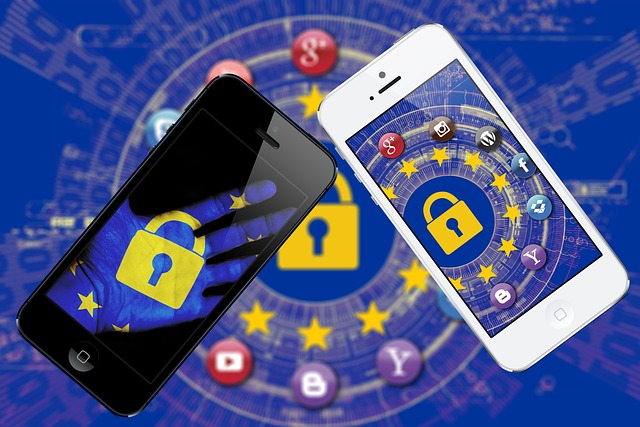In an era where digital interactions have become the backbone of community life, the way we share, store, and protect personal data has evolved into a cornerstone of social etiquette. Communities—whether online forums, social media groups, or collaborative workspaces—are built on trust. When members trust that their personal data is handled with care, engagement flourishes. Conversely, careless data practices erode that trust and can lead to reputational damage, legal penalties, or a decline in participation. This article explores how the protection of personal data intersects with contemporary social trends, outlining practical etiquette for individuals and guiding principles for community leaders.
The Evolving Definition of Personal Data
Personal data is no longer limited to obvious identifiers such as names and addresses. Modern algorithms can infer sensitive attributes from seemingly innocuous information: browsing history can reveal health concerns; location data can disclose political beliefs; even the timing of a post can hint at mood. Because of this, communities must treat all data with a heightened level of sensitivity. The concept of “contextual integrity”—the idea that information flows are governed by social norms—underscores the need for data etiquette that respects the context in which information is shared. The broader definition of personal data demands that members and administrators alike question whether a piece of information is truly necessary for a given interaction.
Why Protection Matters in Community Settings
Protection of personal data is vital for several reasons. First, it safeguards individual privacy, giving members control over how they are perceived and preventing unwanted exposure. Second, it preserves the integrity of the community; when data mishandling becomes public, members may withdraw, leading to fragmentation. Third, compliance with legal frameworks—such as the General Data Protection Regulation (GDPR) or the California Consumer Privacy Act (CCPA)—is non‑negotiable for communities that process data from residents in regulated jurisdictions. Finally, responsible data practices enhance a community’s reputation, making it an attractive hub for collaboration and innovation.
Common Data Practices in Digital Communities
Most communities rely on a handful of core data practices: sign‑up forms that collect basic contact details; profile pages where users voluntarily share background information; activity logs that record interactions; and moderation tools that flag content. Each of these practices involves the handling of personal data. For example, activity logs may inadvertently capture the exact time a user engages with a sensitive topic, which could be exploited. It is essential that communities implement the principle of data minimization—collecting only what is essential—and that they anonymize or pseudonymize data whenever possible.
Key Social Trends Influencing Etiquette
Several social trends are reshaping how communities think about data protection. The rise of micro‑privacy encourages individuals to exercise fine‑grained control over their information. The surge in algorithmic transparency pressures communities to disclose how data drives content recommendations. Meanwhile, the growing awareness of data fatigue—the mental load of managing privacy settings—demands that platforms simplify consent mechanisms. Together, these trends foster an environment where etiquette is not just a courtesy but a strategic necessity.
- Micro‑privacy: granular sharing controls.
- Algorithmic transparency: open insight into recommendation engines.
- Data fatigue: streamlined privacy interfaces.
Tech Etiquette Guidelines for Community Members
Individuals can practice data etiquette by adhering to simple yet powerful guidelines:
- Read privacy notices before submitting data, and focus on what is truly needed.
- Use privacy‑enhancing tools such as pseudonymous usernames or temporary email addresses when signing up for new services.
- Regularly review and delete old posts or comments that no longer serve a purpose.
- When sharing sensitive content, consider the audience scope and opt for private channels rather than public posts.
- Report any suspicious data requests or unexpected notifications to community moderators.
“Data etiquette starts with asking yourself: Is this piece of information truly necessary for the conversation?” – Community Ethics Officer
Role of Privacy Settings in Community Platforms
Most community platforms offer configurable privacy settings. These settings, when used wisely, act as a first line of defense. For instance, setting profile visibility to “friends only” or “followers only” limits the reach of personal data. Likewise, enabling “two‑factor authentication” can protect accounts from unauthorized access. However, many users overlook these controls, leaving data exposed. Communities should therefore conduct periodic audits, reminding members of available settings and encouraging them to adjust preferences that align with their comfort level.
Community Moderation and Data Policies
Effective moderation extends beyond enforcing content guidelines; it encompasses safeguarding personal data. Moderators should enforce policies that prohibit the sharing of identifiable information without consent. They must also ensure that logs and analytics dashboards are securely stored and that access is restricted to a small, trusted group. Transparency reports—outlining how data is handled and how requests for data removal are processed—build confidence. When a community implements a clear data retention schedule, members know when their personal data will be deleted, reinforcing trust.
Best Practices for Data‑Sensitive Moderation
- Use anonymized reporting tools to track community health without exposing user details.
- Establish a data protection officer (DPO) role within the moderation team.
- Implement a request‑to‑delete process that allows members to remove their data effortlessly.
- Regularly review third‑party integrations to confirm they adhere to data protection standards.
Emerging Technologies and Their Impact on Personal Data Protection
Artificial intelligence, blockchain, and edge computing are reshaping the data landscape. AI can detect patterns in user behavior, but it also amplifies the risk of unintended profiling. Blockchain offers decentralized identity management, potentially reducing reliance on centralized data brokers. Edge computing shifts data processing closer to the user, decreasing the volume of data transmitted to central servers. Communities that embrace these technologies must pair them with robust ethical frameworks, ensuring that innovation does not compromise the protection of personal data.
Future Outlook: Cultivating a Culture of Data Respect
Looking ahead, the intersection of technology etiquette and social trends will continue to shape digital community life. As data becomes ever more granular, the norms around sharing and consent will evolve. Communities that embed protection of personal data into their core values—by designing privacy‑first features, fostering open conversations about data, and regularly updating policies—will not only comply with regulations but also attract members who prioritize ethical engagement. Ultimately, the future of community will be defined by the ability to balance connectivity with the unwavering respect for each member’s personal data.




